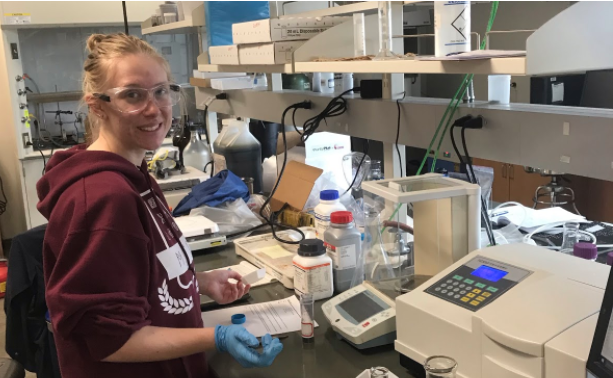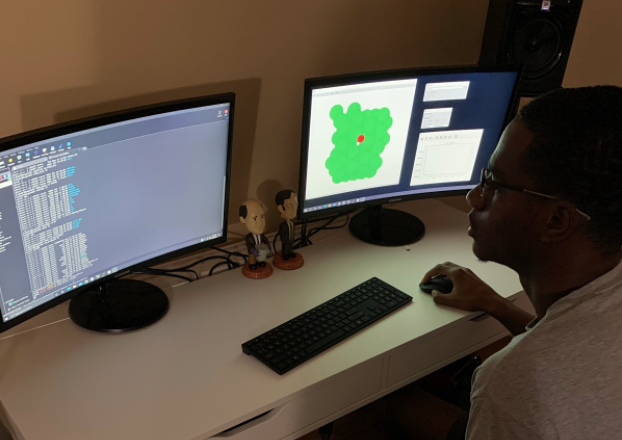In October 2018, the Intergovernmental Panel on Climate Change (IPCC) found that the global temperature will increase by 1.5 degrees Celsius by the years 2030-2052. The dominant cause? Human activities- with carbon dioxide (CO2) emissions responsible for around a third of this projected warming.
Research Innovators in Sustainable Energy (RISE) aims to help address the need for a skilled workforce equipped to develop CO2-neutral sustainable sources of energy by implementing a training program for students. Despite the COVID-19 pandemic and associated restrictions, RISE supported the involvement of two graduate students and two undergraduate students last semester.
Last spring, RISE received funding for the Sustainability Challenge Grant, a collaborative effort of the Presidents Sustainability Advisory Committee, the Tracy Farmer Institute for Sustainability and the Environment, the Office of Sustainability and the Student Sustainability Council.

Student Approaches to Sustainability
Students are involved in a number of sustainable energy-related projects and work with an interdisciplinary group of faculty and staff at UK, as well as partners that support sustainability efforts in Kentucky.
One undergraduate student, Maya Hills, is further developing algae-based carbon capture and utilization – a process in which algae are used to capture CO2 emissions. Her research is also focused on investigating the ways in which valuable products can be obtained from the resulting algal biomass.
Graduate student John Quinn and undergraduate Camron De’Vine are remotely involved in a research project focused on the conversion of waste oils to renewable fuels, such as green diesel and renewable jet fuel. De’Vine’s abstract was even accepted and presented at the 2020 Conference of the Society for Advancement of Chicanos/Hispanics and Native Americans in Science, “The National Diversity in STEM Conference”.

Additionally, graduate student Julia Parker and undergraduate Haley Shaver are participating in a research project focused on increasing the economic viability of biorefineries by assigning value to lignin, one of the components of dry plant matter. They are investigating ways to obtain valuable chemicals from lignin so that biorefineries producing ethanol from wood, agricultural, or forestry wastes can become economically viable.
Community Outreach
The students’ research is also intended to promote sustainability to the general public, involving the local community and creating tangible products from their work.
The Gobble Grease Toss is an initiative in which students from local K-12 schools collect used cooking oil from the community and deliver it to UK. This initiative has been extraordinarily successful, keeping more than 1,300 gallons of used oil from landfills and sewers – and the amount of oil collected has greatly overwhelmed UK’s processing capacity. RISE has worked to establish a partnership with a regional biodiesel company in which the oil is donated for conversion to fuel. A record-breaking 548 gallons of used cooking oil was collected this past year to be recycled!
As UK transitions to Phase 4 of reopening due to COVID-19 related restrictions, RISE will be able to recruit additional students for participation in carbon-neutral research projects, both at home and potentially abroad, and create more opportunities for community outreach.

If you’re a student, reach out to your professors for opportunities to get involved in research that inspires you!


























